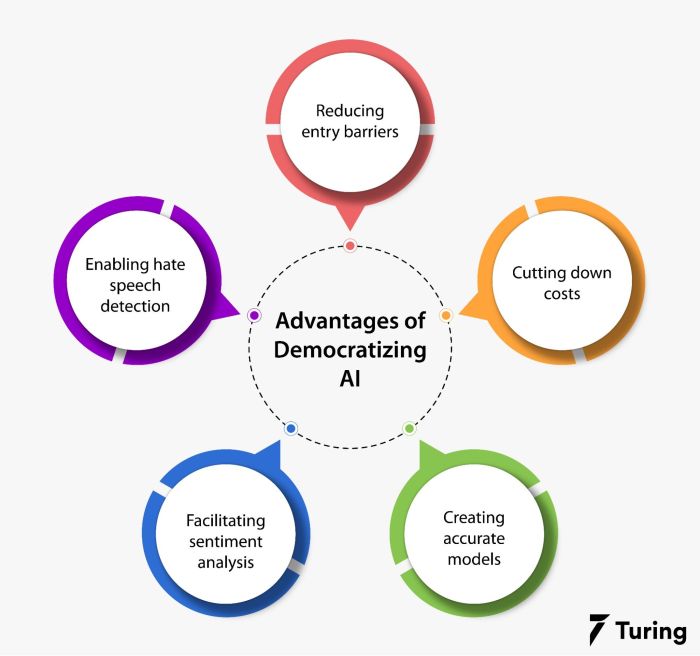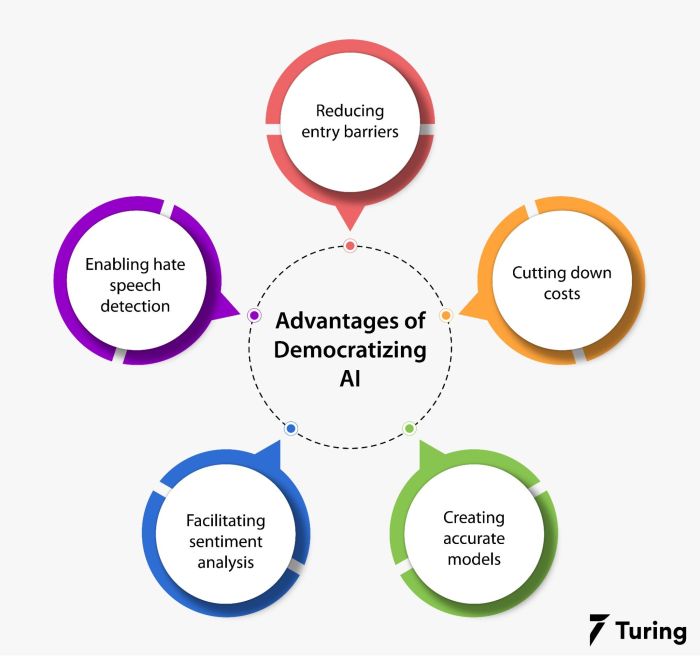Revitalising european democracy ai supported civic tech rise – Revitalizing European Democracy: AI-Supported Civic Tech Rise – In an era marked by growing political polarization, declining trust in institutions, and voter apathy, European democracy faces a pivotal moment. The rise of AI-powered civic tech presents a compelling opportunity to address these challenges and usher in a new era of citizen engagement and democratic participation.
This technology offers innovative solutions for enhancing transparency, promoting accountability, and empowering citizens to actively shape the future of their societies. From citizen engagement platforms to election integrity tools, AI-driven solutions are poised to transform how we govern and interact with our governments.
The Need for Revitalization

European democracy, once a beacon of stability and progress, is facing a period of profound challenges. While the continent has witnessed remarkable advancements in human rights, economic prosperity, and social welfare, recent years have seen a decline in trust in institutions, a rise in political polarization, and growing voter apathy.
These trends pose a significant threat to the very foundations of European democracy, demanding urgent attention and innovative solutions.
Declining Trust in Institutions
The erosion of trust in institutions is a widespread phenomenon across Europe, fueled by a complex interplay of factors. Public confidence in political parties, governments, and the media has been steadily declining, as citizens perceive these institutions as being out of touch with their concerns and priorities.
- For example, a 2022 Eurobarometer survey found that only 32% of Europeans trust their national governments, while just 29% trust the European Union.
- This decline in trust is often attributed to a perceived lack of transparency, accountability, and responsiveness in political decision-making.
- Furthermore, the rise of populism and extremist movements has further eroded public faith in traditional political institutions, as these groups often exploit existing grievances and anxieties to undermine public confidence in the democratic process.
The consequences of declining trust are far-reaching. When citizens lose faith in their institutions, they are less likely to engage in civic life, participate in elections, or accept the legitimacy of political decisions. This can lead to a decline in political participation, a rise in social unrest, and a weakening of democratic norms.
AI-Supported Civic Tech
The potential of AI-powered civic tech to address the challenges facing European democracy is vast. AI can be used to improve citizen engagement, enhance election integrity, and promote government transparency. This technology has the power to revitalize democracy by fostering a more inclusive and accountable system.
Examples of AI-Driven Civic Tech Solutions
AI-driven solutions are already being implemented across Europe to improve various aspects of civic engagement and governance. Here are some notable examples:
- Citizen Engagement:AI-powered chatbots can be used to provide citizens with personalized information about government services and programs. These chatbots can also be used to collect feedback from citizens on policy proposals. For instance, the City of Helsinki uses a chatbot called “Helmi” to answer citizens’ questions about municipal services and provide personalized information about local events.
- Election Integrity:AI can be used to detect and prevent voter fraud. For example, the Estonian government uses AI to verify the identity of voters and prevent multiple voting. This technology has significantly reduced the incidence of election fraud in the country.
- Government Transparency:AI can be used to analyze large datasets of government information, making it easier for citizens to access and understand complex data. For instance, the UK government uses AI to analyze data on public spending, making it easier for citizens to track how their tax money is being used.
Ethical Considerations and Potential Risks
While AI-powered civic tech holds immense potential, it is crucial to consider the ethical implications and potential risks associated with its use.
- Bias and Discrimination:AI algorithms can perpetuate existing biases if they are trained on data that reflects societal inequalities. For instance, an AI-powered system used for allocating government resources could potentially discriminate against certain communities if the training data is biased.
- Privacy and Data Security:The use of AI in civic contexts raises concerns about the privacy and security of citizens’ data. It is crucial to ensure that data is collected and used ethically and responsibly, with appropriate safeguards in place to protect individuals’ privacy.
- Transparency and Accountability:AI systems can be complex and opaque, making it difficult to understand how they reach their decisions. This lack of transparency can undermine public trust in government and make it difficult to hold officials accountable for their actions.
Empowering Citizens Through Technology

The rise of AI-supported civic tech presents an unprecedented opportunity to empower citizens and revitalize European democracy. By leveraging the power of technology, we can create a more inclusive, transparent, and responsive political landscape.
Examine how motorola touts moto x faster rival devices carrier test done different networks can boost performance in your area.
AI-Supported Civic Tech Tools and Applications
The following table showcases various AI-supported civic tech tools and their applications in enhancing democratic participation:
| Tool Name | Description | Functionalities | Potential Impact |
|---|---|---|---|
| Citizen Engagement Platforms | Online platforms that facilitate citizen participation in policy discussions, surveys, and consultations. | Enable citizens to voice their opinions, submit proposals, and engage in dialogue with policymakers. | Increased citizen participation, improved policymaking, and a more inclusive decision-making process. |
| AI-Powered Chatbots | Virtual assistants that provide citizens with information about government services, policies, and procedures. | Offer personalized and accessible information, answer frequently asked questions, and guide citizens through bureaucratic processes. | Improved access to information, reduced bureaucratic burdens, and increased transparency. |
| Data Visualization Tools | Tools that use AI to analyze and visualize complex datasets, making information more accessible and understandable. | Present data in interactive and engaging ways, enabling citizens to understand complex issues and hold authorities accountable. | Enhanced transparency, improved public understanding of policy issues, and data-driven decision-making. |
| Fact-Checking Platforms | AI-powered tools that identify and verify the accuracy of information circulating online, combating misinformation and disinformation. | Analyze content for factual errors, identify potential bias, and provide reliable sources of information. | Increased trust in information, reduced spread of misinformation, and improved public discourse. |
| Predictive Analytics for Policy Evaluation | AI algorithms that analyze historical data to predict the potential impact of policy decisions. | Provide policymakers with evidence-based insights, enabling them to make informed decisions and optimize policy outcomes. | Improved policy effectiveness, reduced unintended consequences, and a more data-driven approach to governance. |
Empowering Citizen Participation
AI-supported civic tech tools can empower citizens to participate in decision-making processes, hold authorities accountable, and access information. For example, citizen engagement platforms allow citizens to voice their opinions on policy proposals, submit their own ideas, and participate in online debates.
This fosters a more inclusive and representative decision-making process, ensuring that the voices of all citizens are heard.
Best Practices for Responsible Development and Deployment, Revitalising european democracy ai supported civic tech rise
The responsible development and deployment of AI-powered civic tech solutions are crucial to ensure their ethical and effective use. Some best practices include:
- Transparency and Explainability:AI algorithms should be transparent and explainable, allowing citizens to understand how decisions are made and to identify potential biases.
- Data Privacy and Security:User data should be protected and used responsibly, with clear consent mechanisms and robust security measures in place.
- Inclusivity and Accessibility:AI-powered civic tech solutions should be accessible to all citizens, regardless of their technical skills or language proficiency.
- Collaboration and Engagement:Developers and policymakers should collaborate with citizens and civil society organizations to ensure that AI-powered civic tech solutions meet the needs of the community and address their concerns.
Fostering Collaboration and Innovation
The revitalization of European democracy through AI-supported civic tech requires a collaborative and innovative approach. This necessitates bringing together diverse stakeholders, each with their unique expertise and perspectives, to create a robust ecosystem for developing and deploying these technologies.
Stakeholder Collaboration in AI-Supported Civic Tech
Collaboration is crucial for the successful development and implementation of AI-supported civic tech. A diverse range of stakeholders, each with distinct roles and responsibilities, must work together to ensure the technology is developed ethically, responsibly, and effectively.
| Stakeholder Type | Roles | Responsibilities |
|---|---|---|
| Governments | Policymakers, regulators, funding agencies | Developing ethical guidelines, establishing legal frameworks, providing funding, promoting public awareness, and fostering collaboration |
| Civil Society Organizations | Advocacy groups, community organizations, non-profit organizations | Identifying community needs, promoting citizen engagement, advocating for ethical and inclusive AI development, and providing feedback on technology implementation |
| Technology Companies | Software developers, data scientists, AI researchers | Developing and deploying AI-powered civic tech solutions, ensuring data privacy and security, and collaborating with other stakeholders to address ethical concerns |
| Researchers | Academic institutions, think tanks | Conducting research on the potential impact of AI-supported civic tech, developing new AI algorithms and techniques, and providing technical expertise to other stakeholders |
Key Initiatives and Programs
Numerous initiatives and programs are promoting innovation in AI-powered civic tech. These initiatives foster collaboration, knowledge sharing, and the development of cutting-edge solutions.
“The European Union’s Horizon Europe program, for example, provides significant funding for research and innovation in AI-supported civic tech, focusing on areas such as democratic participation, e-governance, and citizen empowerment.”
These programs aim to bridge the gap between research and real-world applications, facilitating the development and deployment of AI-supported civic tech solutions that address pressing societal challenges.
Shaping the Future of Democracy: Revitalising European Democracy Ai Supported Civic Tech Rise

The rise of AI-supported civic tech presents a unique opportunity to revitalize European democracy, moving beyond traditional models and embracing a more inclusive, responsive, and transparent future. By leveraging the power of technology, we can empower citizens, enhance participation, and strengthen the foundations of democratic governance.
The Potential Long-Term Impacts of AI-Supported Civic Tech
AI-supported civic tech has the potential to reshape the landscape of European democracy in profound ways, impacting how citizens engage with government, how decisions are made, and how accountability is ensured. The long-term impacts of this technology can be categorized into several key areas:
- Increased Citizen Engagement:AI-powered platforms can facilitate more accessible and personalized engagement with government, allowing citizens to participate in decision-making processes, voice their opinions, and access information relevant to their needs. This can lead to a more informed and engaged citizenry, contributing to a stronger and more vibrant democracy.
- Enhanced Transparency and Accountability:AI can be used to automate processes, streamline information sharing, and provide real-time data on government performance, enhancing transparency and accountability. This can help build trust in government by ensuring that citizens have access to reliable information and can hold officials accountable for their actions.
- Improved Policy-Making:AI-driven data analysis can help governments understand complex social issues, identify patterns, and predict potential outcomes, leading to more informed and effective policy decisions. This can contribute to a more efficient and responsive government that addresses the needs of its citizens more effectively.
- Empowering Civil Society:AI-supported civic tech can empower civil society organizations to engage in advocacy, research, and community outreach more effectively. This can lead to a more diverse and robust civil society that can hold government accountable and advocate for the interests of its members.




